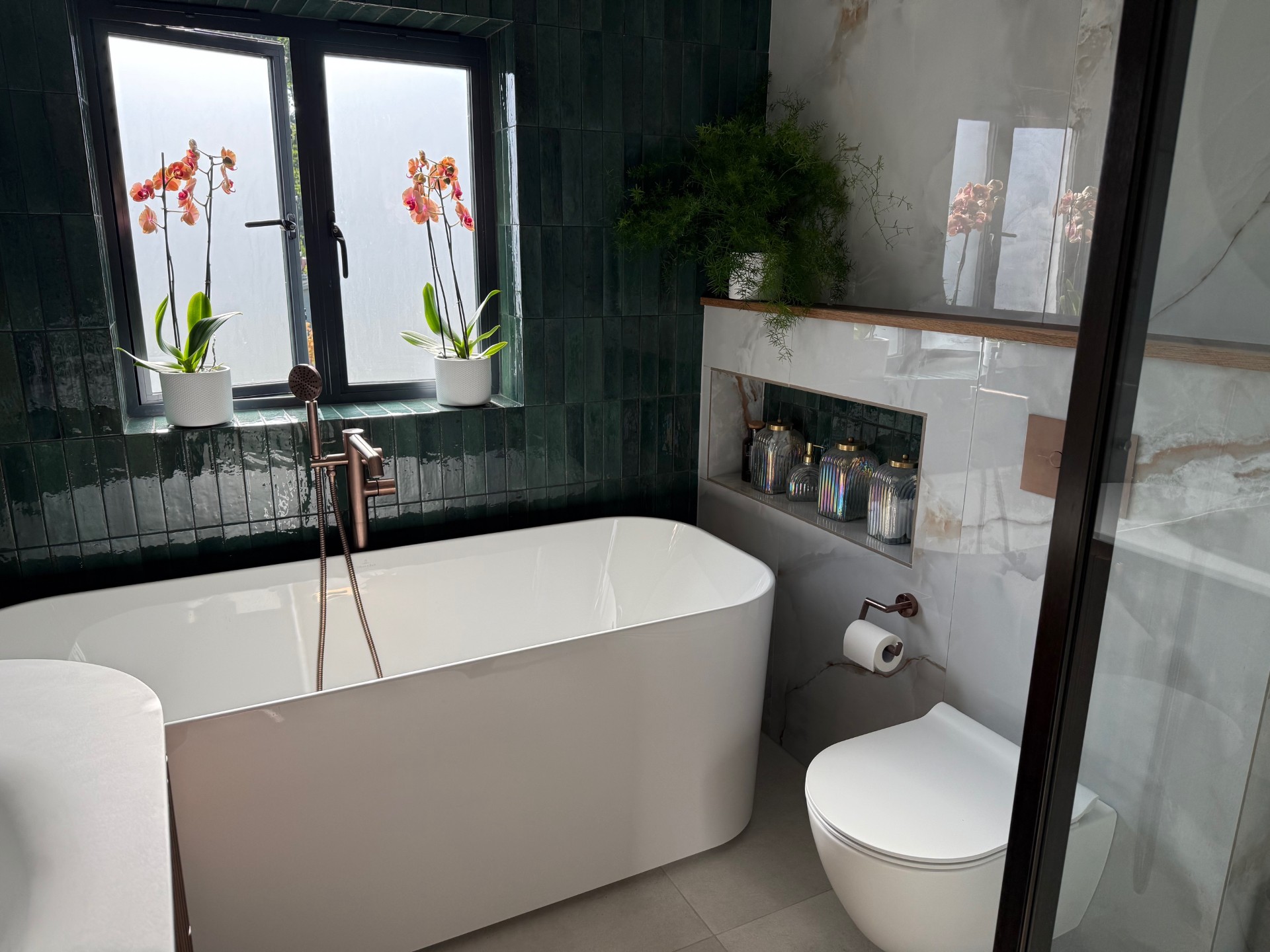

Eco Heating in England in 2025, the updates you need to know
If you are thinking about upgrading your heating this year, the picture is changing fast. Grants are larger, planning rules are simpler, and there are more trained installers coming through. The right move in 2025 could cut your running costs, lower your carbon footprint, and save thousands upfront.
Target keywords used in this guide, eco heating England, heat pump grants UK, Boiler Upgrade Scheme, air to air heat pump England, eco heating.
Quick take for 2025
- Grants remain generous, up to £7,500 for air source and ground source heat pumps, and £5,000 for eligible biomass boilers. The Boiler Upgrade Scheme applies in England and Wales, installers apply on your behalf, and the grant is taken off your invoice.
- The scheme budget was topped up in January 2025, which supports continued availability this year.
- Planning rules changed on 29 May 2025, making most air source heat pump installs easier in England through updated permitted development rights.
- Demand is rising, with industry data showing Boiler Upgrade Scheme applications up about 54 percent in the first half of 2025 compared with the same period in 2024. This is linked to the rule changes and the higher grant value.
- Government is consulting on expanding support to more products, including air to air heat pumps and heat batteries. Decisions could apply from 2026.
What counts as eco heating in England right now
When people say eco heating in England, they usually mean one of three systems.
- Air source heat pump, the outside unit extracts heat from air and feeds your radiators and cylinder through water circuits. These are the most common and the main focus of current grants.
- Ground source heat pump, pipework or a borehole in the ground collects low temperature heat. These qualify for the same top tier grant value.
- Biomass boiler, mainly for rural off gas homes in specific cases, covered by a lower grant.
The Boiler Upgrade Scheme in 2025, what you get and who can apply
- Grant values, £7,500 for air source, £7,500 for ground source, £5,000 for eligible biomass. One grant per property. You cannot use it for a hybrid setup.
- Timing, the installer must commission and install within 120 days of the application.
- Eligibility in plain English, you must own the property and be replacing a fossil fuel system such as gas, oil, LPG or direct electric. You need a valid Energy Performance Certificate. Your installer will check suitability.
- Who runs it, Ofgem administers the scheme and confirmed extra budget for 2024 to 2025, which supports voucher availability.
- Scheme window, the public grant page lists a closing date of 31 December 2027.
How to apply, the short version
- Get quotes from MCS certified installers.
- Agree a quote, your installer applies to Ofgem.
- Ofgem will contact you to confirm the installer is acting for you. The grant comes straight off the invoice.
Planning rules are simpler from May 2025
From 29 May 2025, changes to permitted development rights in England make many air source heat pump installs possible without a planning application. Government documents describe the intent as deregulatory and linked to the Warm Homes Plan. Independent and trade summaries note the removal of the one metre boundary rule and increased unit size limits, which had held back installs in dense streets.
This matters for you because it removes paperwork, reduces delays, and makes siting the unit easier on smaller plots. The rule change is one reason industry data shows a strong jump in grant applications in 2025.
Will air to air heat pumps get support
Air to air heat pumps provide heating and cooling through indoor heads, a bit like efficient air conditioning. They are not covered by the Boiler Upgrade Scheme today. The government is consulting on adding support for air to air heat pumps and heat batteries as part of wider reforms, with 2026 in scope for any change. Keep an eye on this if you want year round cooling as well as heating.
More installers, shorter waits
A frequent bottleneck has been getting a trained installer for a first retrofit. The Start at Home approach gives newly trained engineers the chance to fit a full air source heat pump in their own home, with mentoring and kit supplied, which builds confidence for live customer work. The initial pilot involved about three dozen engineers in Scotland and has since grown through partners across Great Britain, including new programmes open to installers in England and Wales.
Government is also targeting growth in the retrofit workforce under the Warm Homes Plan, with up to eighteen thousand professionals to be trained across disciplines such as insulation, solar, and heat pumps. Expect availability to keep improving through 2025.
Tip, apply for grants early, get on your installer’s schedule, and plan around the 120 day install window. Rising demand and limited diary space can push lead times out during cold snaps.
Costs and savings at a glance
Real world quotes vary by property, but the grant takes a large chunk off the up front bill. Some lenders and manufacturers also run offers and finance products, which your installer can explain. The grant is deducted at source, so you pay the net figure rather than claiming money back later.
Running costs depend on insulation, radiator sizing, and electricity prices. High temperature units using modern refrigerants can work with existing radiators in many homes, which avoids a big radiator swap, though they may use slightly more electricity than low temperature units. A good installer will model this during the survey.
Step by step, how to move to eco heating this year
- Check your Energy Performance Certificate, make sure it is valid. If it recommends basic measures such as loft insulation, take action now since it helps performance and comfort.
- Shortlist two or three MCS certified installers, ask for heat loss calculations and proposed flow temperatures.
- Compare whole system quotes, include the cylinder, any radiator changes, and smart controls.
- Confirm Boiler Upgrade Scheme eligibility and dates, agree the quote, and let your installer submit the application.
- Check siting against the new planning rules, most homes no longer need a planning application for an air source unit.
- Book the install, keep the 120 day deadline in mind.
- Optimise, ask your installer to set weather compensation, flow temperatures, and hot water timings. Small tweaks make a clear difference to bills.
Frequently asked questions
Are heat pump grants in the UK still available in 2025
Yes. The Boiler Upgrade Scheme offers £7,500 for air source, £7,500 for ground source, and £5,000 for eligible biomass. The budget was increased for this year and the scheme is open through 2027.
Do I need planning permission for an air source heat pump in England
Often no. From 29 May 2025, updated permitted development rights mean many installs do not need a planning application, subject to conditions on placement and size. Your installer will confirm site details.
Are air to air heat pumps covered by grants
Not yet. Government is consulting on expanding support to technologies such as air to air heat pumps and heat batteries, with 2026 under consideration.
How long do I have after my installer applies
Install and commission within 120 days or the voucher will lapse.
Who applies for the grant
Your MCS certified installer applies on your behalf. Ofgem will contact you to confirm, and the grant comes off your invoice.
What if my home uses direct electric heating
You can still be eligible, since the grant replaces fossil fuel and direct electric systems. Suitability is confirmed through survey and heat loss calculations.
Should you wait or go ahead in 2025
If your boiler is due for replacement, there is a strong case to act now. Grants are generous, planning admin is lighter, and installer capacity is improving through focused training and first install support. Demand is rising quickly, so early applications and firm dates with your installer are the safest way to secure the grant and get your system commissioned on time.
Need a simple checklist
- Current EPC in hand
- Shortlist of MCS installers and like for like quotes
- BUS eligibility confirmed and application date set
- Siting checked against the new planning rules
- Install date inside the 120 day window
- Controls and weather compensation configured on handover
Sources and further reading
- GOV UK, Boiler Upgrade Scheme, what you can get and how to apply.
- Ofgem, Boiler Upgrade Scheme overview and 2025 budget update.
- GOV UK, consultation on Boiler Upgrade Scheme and certification, including air to air heat pumps and heat batteries.
- UK Parliament and GOV UK, the 2025 amendment to permitted development rights for air source heat pumps.
- Industry coverage on the 54 percent rise in applications following planning changes and higher grants.
- Nesta and partners, Start at Home installer pathway and England and Wales rollouts.
Final word
Eco heating in England is getting easier to choose and easier to fit. If you want help turning this guide into an action plan for your home, share your EPC rating, current system, and a rough idea of your insulation level, and I will suggest a short list of steps and the right installer questions to ask.






.png)


